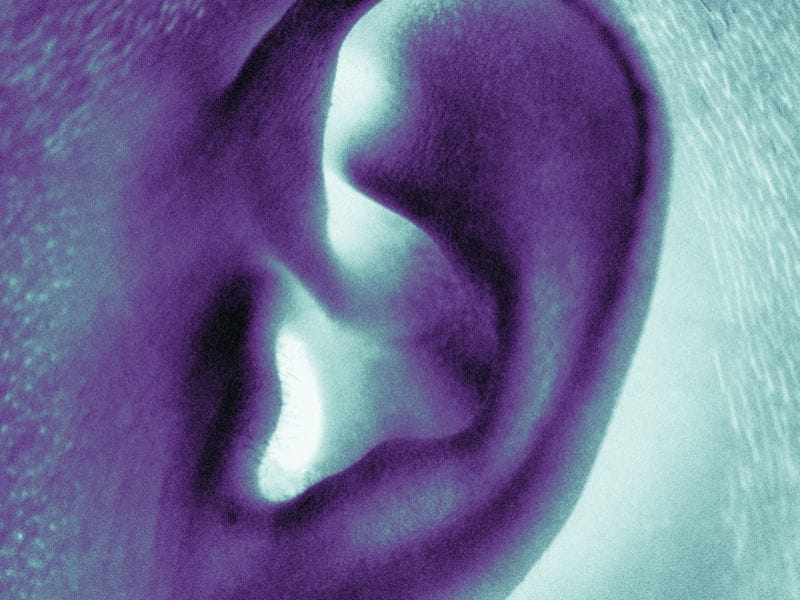Therapeutic improvements continued for 12 months after treatment with bimodal stimulation
THURSDAY, Oct. 8, 2020 (HealthDay News) — Adults with chronic subjective tinnitus who receive treatment with a device that combines sound and tongue stimulation may experience a significant reduction in tinnitus symptom severity, according to a study published in the Oct. 7 issue of Science Translational Medicine.
Brendan Conlon, from Neuromod Devices Limited in Dublin, Ireland, and colleagues examined a bimodal neuromodulation approach for the treatment of tinnitus. The researchers used a noninvasive device to deliver sound to the ears and electrical stimulation to the tongue in 326 adults with chronic subjective tinnitus. Participants were randomly assigned to three parallel arms, which had different stimulation settings. During a 12-week treatment period and a 12-month posttreatment phase, clinical outcomes were assessed.
The researchers found that at the end of treatment, participants achieved a statistically significant reduction in tinnitus symptom severity based on two commonly used outcome measures: the Tinnitus Handicap Inventory and Tinnitus Functional Index. For specific bimodal stimulation settings, therapeutic improvements continued for 12 months after treatment. High compliance and satisfaction rates were achieved with treatment, with no reports of treatment-related serious adverse events.
“Overall, the study represents one of the largest medical device clinical trials in the tinnitus field, supporting the safety, patient tolerability, and efficacy of bimodal neuromodulation for the treatment of tinnitus,” the authors write.
Several authors disclosed financial ties to Neuromod Devices, which funded the study.
Abstract/Full Text (subscription or payment may be required)
Copyright © 2020 HealthDay. All rights reserved.

